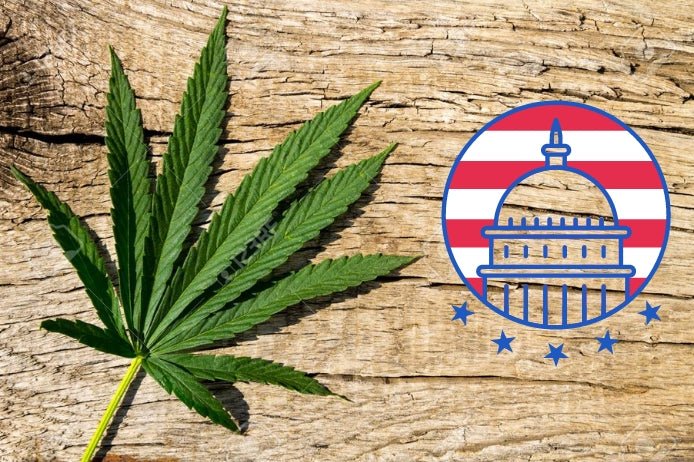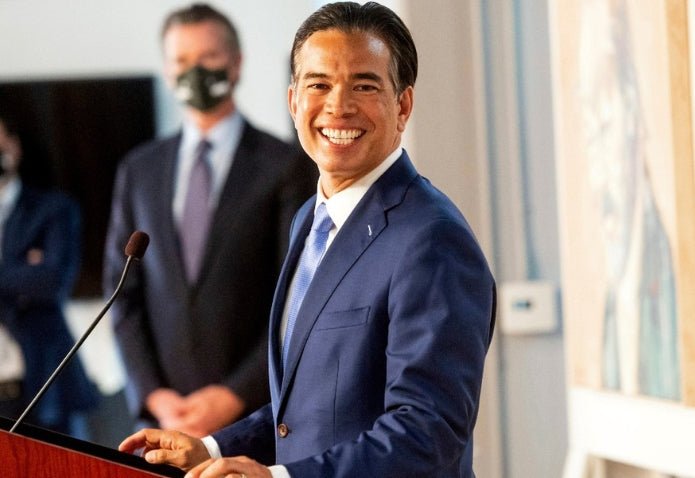The new measure would withhold 10% of federal interstate highway funding from legal marijuana havens nationwide.

In the same week in which the Department of Health and Human Services (HHS) recommended moving cannabis from Schedule I to Schedule III of the Controlled Substances Act, a freshman congressman from North Carolina has introduced legislation that would cut federal highway funding in localities where adult-use marijuana is legal.
According to multiple media outlets, U.S. Rep. Chuck Edwards (R-NC) made good on his promise to file legislation designed to punish states and Native American tribes that have gone against federal law and passed marijuana legalization reforms. The measure, known as the Stop Pot Act, would hold back 10% of federal highway funding to jurisdictions “in which the purchase or public possession of marijuana for recreational purposes is lawful.”
The measure’s filing comes less than a week before the Easter Band of Cherokee Indians (EBCI), a tribe in Edwards’ home congressional district, votes on an adult-use cannabis legalization referendum. His main argument for crafting the legislation is that actions by states and tribal councils to legalize marijuana for use by adults 21 and older are an affront to U.S. law.
In a press release, Edwards said, “The laws of any government should not infringe on the overall laws of our nation, and federal funds should not be awarded to jurisdictions that willfully ignore federal law. During a time when our communities are seeing unprecedented crime, drug addiction, and mental illness, the Stop Pot Act will help prevent even greater access to drugs and ease the strain placed on our local law enforcement and mental health professionals who are already stretched thin.”
"The laws of any government should not infringe on the overall laws of our nation, and federal funds should not be awarded to jurisdictions that willfully ignore federal law. During a time when our communities are seeing unprecedented crime, drug addiction, and mental illness, the Stop Pot Act will help prevent even greater access to drugs and ease the strain placed on our local law enforcement and mental health professionals who are already stretched thin.”
- Rep. Chuck Edwards (R-NC)
Two weeks ago, Rep. Edwards authored an op-ed piece in the EBCI’s Cherokee One Feather in which he urged tribal members to vote against the referendum, warning the tribe may lose federal funding under a bill he planned to introduce in Congress if legalization is approved. The vote will be this Thursday and, if it passes, would allow adults to purchase recreational marijuana on tribal lands, including non-tribal members over 21. Now that he has filed the bill co-sponsored by Rep. Gregory Murphy (R-NC), all eyes will now focus on the election results this week.
The likelihood of the bill making it through both chambers of Congress and then being signed into law by President Biden is slim at best. However, the measure could potentially impact more than just the EBCI. If it somehow successfully navigated Washington’s murky and hazardous legislative waters, the bill would impose a substantial economic hit to states home to almost half of all Americans.
Despite the tough talk and political rhetoric, few industry advocates and stakeholders are worried about the potential effects of Rep. Edwards’ new bill. Following the congressman’s comments, EBCI Principal Chief Richard Sneed characterized Edwards’ statements as “a major political blunder.”
In response, Sneed said in the Cherokee One Feather that he believes Edwards “overstepped his authority,” highlighting that the congressman is “a non-Indian, elected official telling a sovereign tribal nation how they ought to handle their business.”
"(He) overstepped his authority. (Rep. Edwards is) a non-Indian, elected official telling a sovereign tribal nation how they ought to handle their business.”
- EBCI Principal Chief Richard Sneed
So far, the measure has received endorsements from the prohibitionist group Smart Approaches to Marijuana (SAM) and the Christian Action League. In a statement released by Edwards’ office, SAM’s president and CEO Kevin Sabet said that “today’s marijuana isn’t Woodstock Weed,” referencing the iconic and controversial outdoor music festival held at the height of the American counter-culture movement in 1969.
He continued, “It is a highly engineered drug that’s often wrapped in kid-friendly packaging, with potencies of up to 88 percent. The legalization movement has worsened America’s mental health and addiction crisis by preying on communities of color and young people.”
Sabet’s rhetoric notwithstanding, no U.S. state where adult-use cannabis is legal allows product marketing aimed at children. Likewise, despite some evidence that a very tiny number of people may experience psychosis when smoking or ingesting marijuana, there is also a significant amount of other recent research demonstrating that cannabis may actually help improve psychosis symptoms in a large number of marijuana users.
Ultimately, the almost childishly named Stop Pot Act will most likely die a quick and painless death before it even has a chance to make it to a single committee hearing. It would require a large number of “Yes” votes from politicians whose states have a vested financial and political interest in advancing the legal cannabis reform agenda. So, despite his idle threats and posturing, Rep. Edwards may only succeed in alienating a large sector of his constituency and making his stay in Congress shorter than he might have hoped.








































